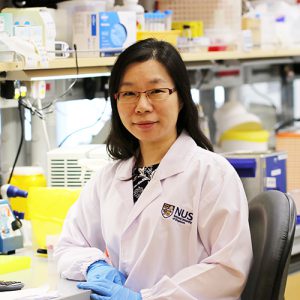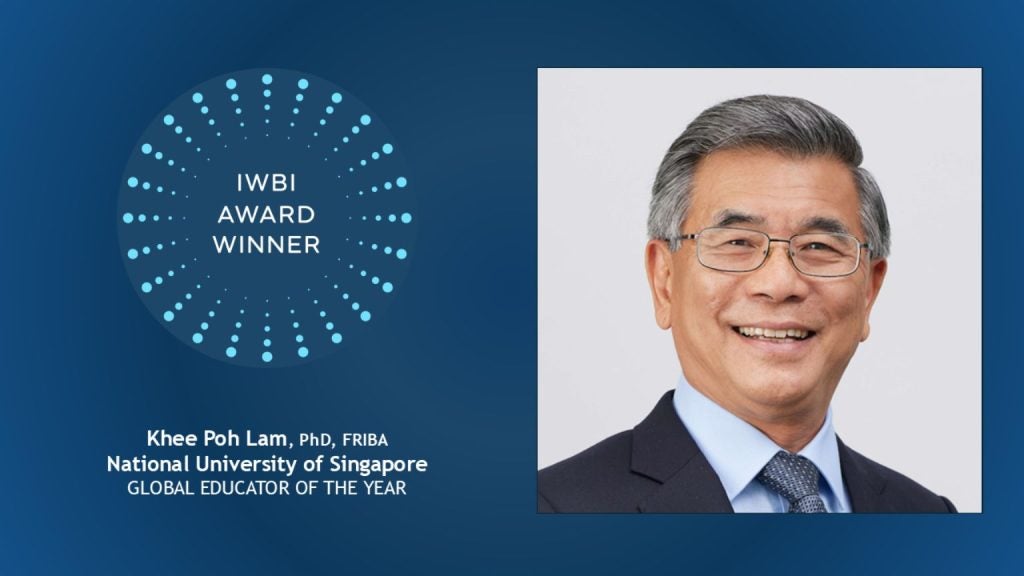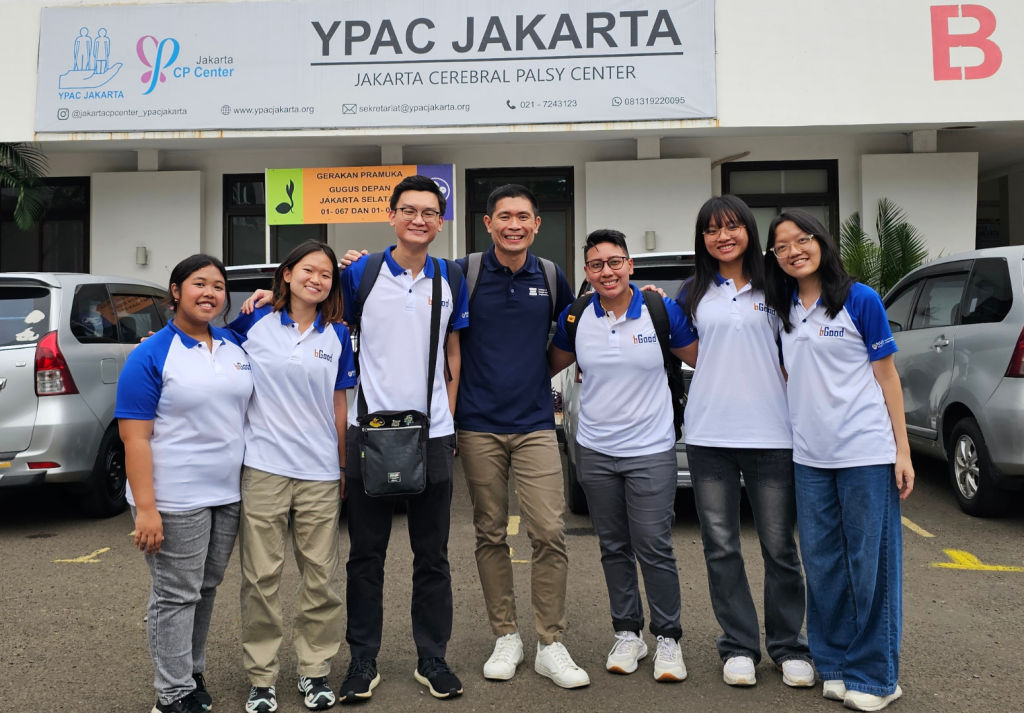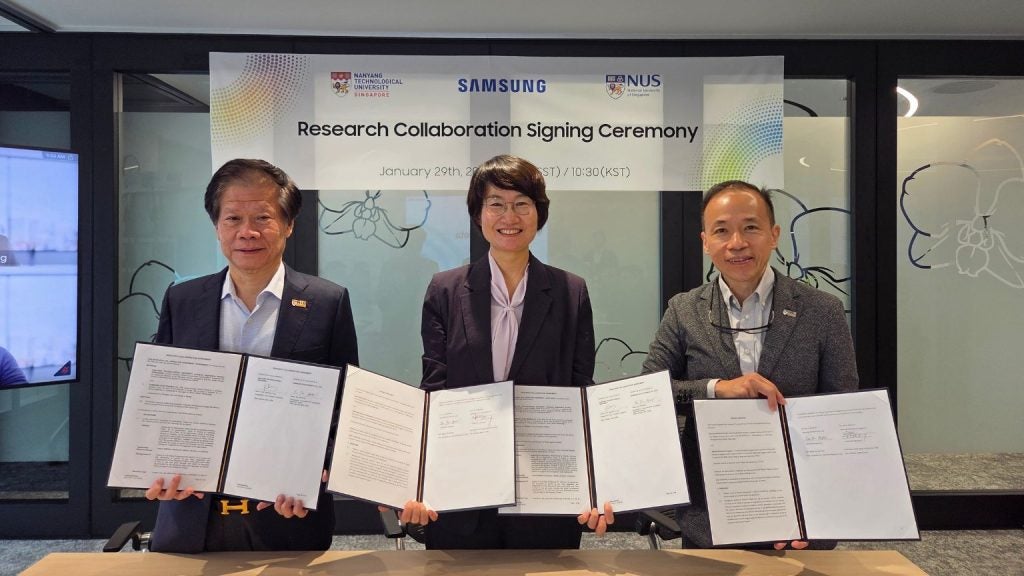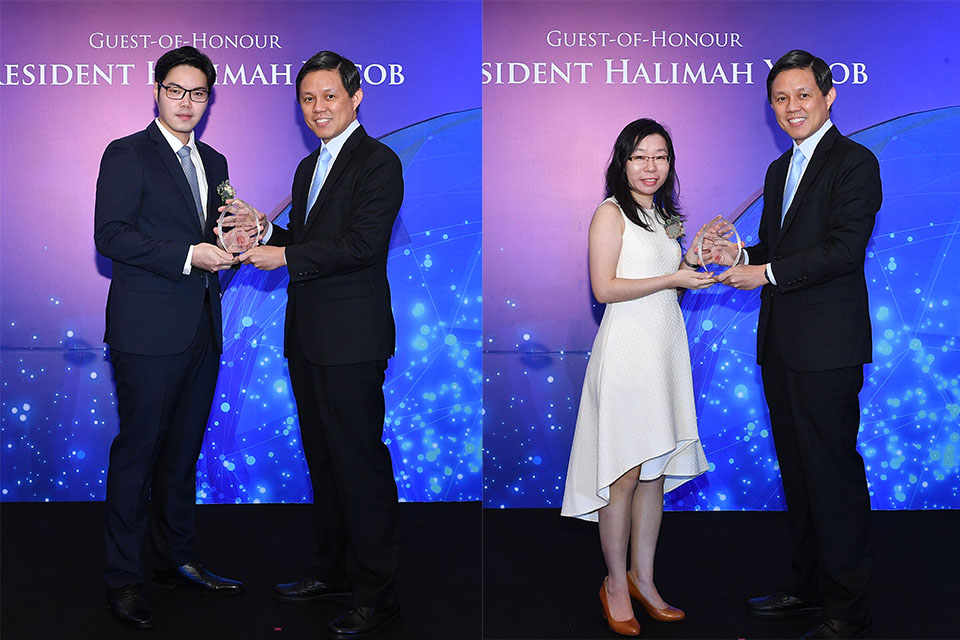
NUS Engineering Assistant Professors Charles Lim and Shao Huilin received the Young Scientist Awards (YSA) at the President's Science and Technology Awards (PSTA) on 17 October 2019. The PTSA are Singapore's highest honours that recognise research achievements in science and technology, with the YSA being awarded to researchers under the age of 35 who have shown great promise to be world-class researchers in their fields of expertise. This year, YSA gave recognition to only two researchers, both from NUS Engineering.
We caught up with our award winners to learn more about their work.
Assistant Professor Charles Lim's research on quantum cryptography paves the way to scalable and fast quantum-safe networks in Singapore. Dr Lim is with NUS Electrical and Computer Engineering and the NUS Centre for Quantum Technologies.
Q: Why quantum crytography?
A: The encryption techniques of today are unable to hold up against large-scale quantum computers. This means the security of our information; thus, our digital life, will be compromised if we do not have the necessary quantum upgrades. That sparked my interest to develop practical quantum network protocols that can secure private and sensitive data in the new quantum computing era.
Q: What are some outcomes to date?
A: Current quantum cryptosystems require expensive components and lack scalability. One way to significantly reduce the cost and size of such cryptosystems is to leverage on the silicon photonics platform to build chip-scale quantum devices for encryption and communication. Through our collaboration with imec - an R&D leader in nanoelectronics - we plan to put quantum technologies into future consumer devices.
Q: What is the potential impact of your research on the real world?
A: As quantum computers become more powerful, the systems defending against their malicious use and protecting the private information of governments and industries will also need to become more secure. On a more widespread level, individuals will be able to browse and transact online without fear that their identity or private information could be compromised.
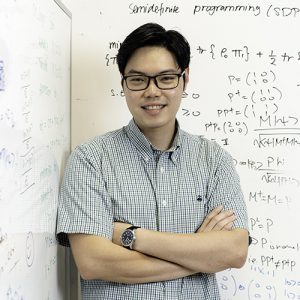
"Quantum cryptography is likely to play a critical role in our future communication networks. I hope more colleagues and young researchers will step forward to help us turn quantum cryptography into a truly viable technology for all."
Assistant Professor Shao Huilin's research in developing diagnostic technologies is set to positively impact the work of medical professionals, and the lives of patients. Dr Shao is with NUS Biomedical Engineering and NUS Institute for Health Innovation & Technology (iHealthTech).
Q: How did you get started on researching diagnostic technologies?
A: There are a lot of biomarkers circulating within our bodily fluids that can provide a wealth of information on our health, but their potential remains untapped because of a lack of compatible biosensors. I am motivated to develop platform technologies that make disease detection and treatment monitoring non-invasive, safer and faster. My team and I achieve this through a highly interdisciplinary approach - by leveraging know-how in molecular biology, nanomaterials and device engineering.
Q: What success have you had so far?
A: Some notable outcomes we achieved include molecular switches that produce a visible colour change for rapid detection of infectious diseases, as well as a new blood test that can accurately detect Alzheimer's disease, even at a very early stage. More recently, we harnessed the unique properties of DNA to form 3D barcodes that can be used to detect if cancer is present, its subtype and even its aggressiveness, using just a tiny sample of cells from the patient, compared to traditional biopsies.
Q: When will we see your technologies in clinical practice?
A: Many of these technologies have been successfully validated in clinical trials and we hope to see them reach the market in the next few years. I am confident that our technologies will continue to expand the clinical reach of previously underappreciated biomarkers, and introduce new opportunities for non-invasive disease detection and guide personalised treatment selection.
"Our work goes beyond advancing innovative technologies - we are looking to save patients' lives through empowering earlier disease detection and better patient care."
